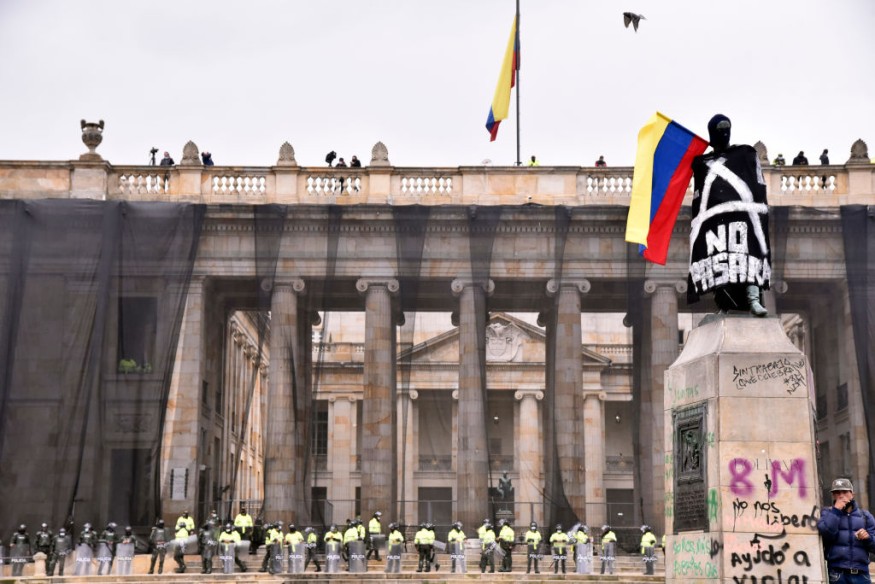Colombia's Finance Minister Quits After Tax Reform Plan Withdrawn

Colombia's finance minister has resigned from his post after deadly mass protests erupted across the country over a tax reform proposal.
Finance Minister Alberto Carrasquilla's resignation comes a day after President Ivan Duque announced that the proposed tax reform would be put to shelves due to the opposition it received.
It can be recalled that thousands of protesters in Colombia gathered on the streets and demonstrated against the proposed tax reform after it was announced last Wednesday.
Ivan Duque announced he was withdrawing the tax reform proposal on the television on Sunday. Demonstrators, lawmakers, and other groups opposing the plan welcomed the announcement as a victory.
The president of Colombia said his administration would produce new proposals and pursue an agreement with other organizations and parties.
There are no definite national death counts connected to protests yet, but the procurator's office is investigating 14 deaths across the country.
RELATED ARTICLE : Protests Erupt in Colombia Over Proposed Tax Reform Amid Pandemic
Colombia's Finance Minister Resigns
San Diego Union-Tribune reported that Alberto Carrasquilla is the one behind the tax reform that the president shelved. The said plan was geared to raise about $6.7 billion as the country struggles to pay its debts while trying to provide the poor with subsidies amid the COVID-19 pandemic.
"My continuance in the government will complicate the quick and effective construction of the necessary consensus," the Colombia's finance minister said as reported by Reuters.
Alberto Carrasquilla also warned that the country's "macroeconomic stability" will be gravely affected without the reform.
Apart from Alberto Carrasquilla, his deputy Juan Alberto Londono will also resign from his post, Al Jazeera reported, citing a Colombian radio station. The outlet also mentioned that the whole team who worked on the plan would also quit.
The tax plan that the president shelved featured 19 percent sales tax on utilities and middle-class neighborhood, wealth tax for individuals who have a net worth of $1.3 million or more, 19 percent sales tax on gasoline, and charging income taxes to people who earn about $700 a month or more.
The proposed tax reform angered the citizens and sparked demonstrations across the country.
Political analyst Sergio Guzmán from Bogota told San Diego Union-Tribune that the resignation of the finance minister would strengthen the protesters until the Colombian government adheres to meet other demands like police reform.
Colombia's Currency Plunges Following Finance Minister Resignation
Following the reports about the withdrawal of the proposed tax reform and the resignation of Colombia's finance minister, Bloomberg noted that the country's currency fell and became the worst performer among major currencies.
Reuters noted that the Colombian currency fell 1.38 percent to a six-month low of 3,804.95 pesos per dollar. The Colombian peso has depreciated 5.34 percent since the tax reform proposal was sent to Congress on Apr. 15.
Bloomberg further noted that the country's five-year credit default swap jumped to the highest in a month. Chief Economist Sergio Olarte from Scotiabank in Colombia noted that in terms of markets, they think that the fiscal reform's withdrawal will heighten the volatility.
Before the finance minister of Colombia announced his resignation, the president on Sunday encouraged lawmakers to devise another tax plan.
WATCH: Colombia Withdraws Controversial Tax Reform Bill - From Reuters
Subscribe to Latin Post!
Sign up for our free newsletter for the Latest coverage!
















